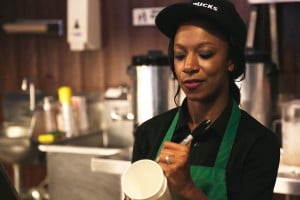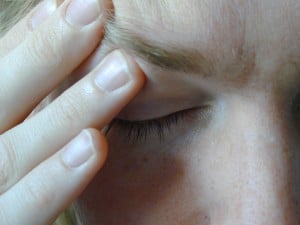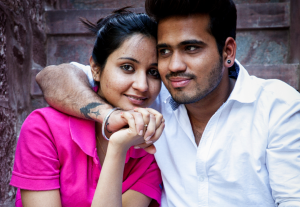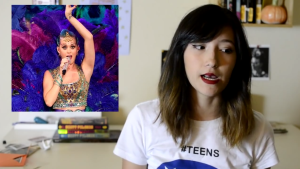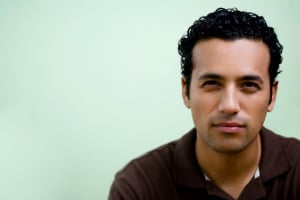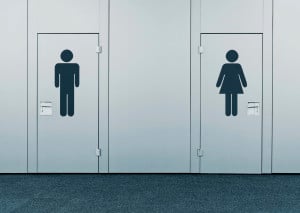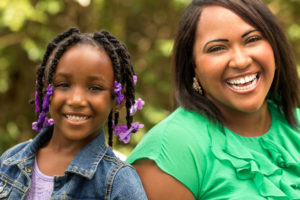
A child and adult sit side-by-side outdoors, smiling.
The alternative learning movement is growing. Reasons range from differences in personal philosophies or religious beliefs to disagreement with traditional schools’ innate focus on standardized test scores at the expense of individual learning.
Whatever the reasons, the result is that children and parents are relying less on teachers and textbooks to impart knowledge and to help secure children’s futures. In fact, homeschooling families have increased nearly 62% between 2003 and 2012, based on a report published by the National Center for Educational Statistic in May of 2015.
To me, this resistance to traditional public schooling is a wonderful thing. I believe that young people should have much more agency over their learning. They shouldn’t be coerced into pre-defined, one-size-fits-all curricula, and they should learn things that are true and relevant to who they are, and who they are becoming.
And to be clear, it isn’t that all homeschooled children are free to learn on their own terms. But for sure, that sense of agency in learning and education is not supported in most American schools.
That’s problematic for all children – and particularly so for black children as they navigate racism inside the American educational system.
Ama Mazama, a renowned educational consultant for the infusion of African content in American schools, and a professor at Temple University, shared a short video illustrating an important sentiment. She interviewed several black families to get perspective on why the homeschooling movement was growing so fast among people of color in particular. Her findings illustrate a reality painfully similar to that of a history of racism and classism in white mainstream feminism: the omission of non-white women’s concerns within the movement.
Lack of truth and diversity in school curricula, the injection of whiteness into classrooms, the lowered expectations when it comes to black students, and the myriad aggressions that come with systemic racism challenge my efforts and hopes as my family and I endeavor to support children inside a system that continues to devalue their existence.
The common ground for us is not mainly about religion or general safety. Instead, as Mazama rightly put it, we choose alternatives to traditional education “to protect our children from the ill-effects of racism as it manifests itself in schools,” including the reduction of our history to what Mazama aptly calls a “footnote in white people’s history.”
There is a definite shift toward decolonizing learning and reclaiming our connection to history, and to ourselves. My family and I are part of that shift, and we do it through unschooling, a type of alternative learning where parents partner with children to facilitate non-coercive, curiosity-led, lifelong learning.
And just like my feminism, my alternative learning mindset isn’t part of some general sentiment on inequality and oppression.
Just as I am not only feminist, I am an intersectional feminist and a womanist – so, too, am I not only an alternative learning advocate and student. I am an unschooler – a black unschooler – and my reasons, like my feminism, do not sit somewhere outside my blackness.
My perspective on preparing my children for life is pretty simple: Life is happening now, and learning happens the entire time. Learning happens in a variety of ways, including, but not limited to, the subject-focused, timed, adult-led structure that most of us are accustomed to in school.
Learning is important, and all children deserve to be in environments where they’re exposed to the skills that can support their ability to thrive as adults. I see literacy and access to information being key components of that type of environment.
And here’s how my partner and I facilitate that without focusing on school:
1. We go to libraries and bookstores often.
2. We learn about food and culture – and try new recipes.
3. They get to attend personal wellness retreats and get exposure to self-care practices.
4. We travel often and involve them in the planning and the choice of activities.
5. They attend our numerous (short-term) lease signings, ask questions, and get to understand how accommodation contracts work.
6. We make sure they get to be with their grandparents. And their cousins. And our friends’ children. So that they have a village around them.
7. We go to museums and take impromptu road trips to places we find online.
8. We volunteer for various activities and get to know real people’s pain and hopes.
9. We start conversations with people we meet. They are almost always eager to share.
10. They play soccer on the beach with skilled players who help them play better.
11. We watch videos on YouTube, BuzzFeed, and Vice, then talk for hours about our observations.
12. We have book club meetings where the four of us share the best parts of books we love.
13. We record our stories, and we learn to use editing software to make them sound good.
14. They find the exact resources they need to get better at communicating in whatever language they’re practicing that month.
15. They practice entrepreneurial skills by conceptualizing and executing ideas for earning money.
16. We use schooling resources whenever our children want them. This includes online classes for practicing writing skills, hiring affordable language tutors, and discussing how Pinterest boards for homeschooling and unschooling families should be designated the eighth wonder of the world.
17. They voluntarily spend hours practicing their chosen areas of study.
18. They teach themselves to modify the CSS of existing website themes to advertise their own Odorite dance squad.
19. We visit beautiful Boulder, Colorado, and they form impromptu intergenerational flash mobs flanked by nature’s beautiful mountains.
20. They play on boats with children who live in fishing villages – and then write or draw pieces to interpret and preserve their experiences.
21. They watch, in person, as their father tries deep-sea spear fishing for the first time, and they ask a million questions of the fishermen who are keeping us safe.
22. They take inexpensive pottery classes in cities with diverse populations, and make new friends with parents from various countries.
23. They join performing arts troupes in new (to them) cities so they can practice doing what they love.
24. We openly discuss our finances and share responsibilities for managing our budget when we travel.
25. They write short essays about weighty experiences like their great grandmother’s funeral. Then they record what they’ve written, and upload them to private YouTube channels for our family to treasure.
26. They take up-close pictures of bugs on farms, and trees on seashores, and fresh-caught fish with wobbly eyes. Then they study them or draw them at home.
27. They find out when anime conventions are happening and (with our help) organize in-person meet-ups with folks from different cities.
28. They can cook their own food without burning down a house or hurting themselves.
29. We read food labels, research ingredients, and practice making informed food choices.
30. They practice personal leadership – instead of mastering the art of following other people’s directions.
We don’t try to fit our lives into school ideas. We just live. And learning naturally happens, mostly through conversation and self-guided research. Some things don’t matter to them, but with other things, they go deep, and they learn things.
We can’t always tell whether they learned something or not. And we’re okay with that. We just pay attention for opportunities to discuss things, and we expose them to new environments and information through in-person and digital events and bodies of work.
When it comes to both personal agency and a deep sense of belonging, I don’t want my children believing in Eurocentric, non-inclusive, and often anti-black sentiments that permeate the educational system. Those sentiments erase the contributions of non-white people in history. And they’re rooted in the belief that black children are less intelligent, more violence-prone, and inherently physically distracting.
My parenting style, including the way I facilitate learning for my two black daughters, is through a lens of personal liberation through autonomous, curiosity-led learning.
I’m damn sure not claiming to have gotten parenting right. What I am saying is that I’ve changed my mind about what I used to believe about children and learning.
I used to casually interchange education with learning, operating under the premise that our children are empty buckets to fill up with information, not people to nurture and help guide toward confident self-governance.
But my daughters and my experiences have shown me a new perspective – and I will use what I’m learning to protect and empower my daughters while they learn their own lessons and define their own lives.
[do_widget id=’text-101′]
Akilah S. Richards is a Contributing Writer for Everyday Feminism. She is a six-time author, digital content writer, and lifestyle coach who writes passionately about self-expression, womanhood, modern feminism, location independence and the unschooling lifestyle. Connect with Akilah on Instagram, Tumblr, or her #radicalselfie e-home, radicalselfie.com. Read her articles.
Search our 3000+ articles!
Read our articles about:
Our online racial justice training
Used by hundreds of universities, non-profits, and businesses.
Click to learn more











